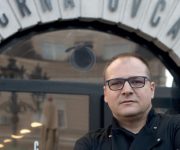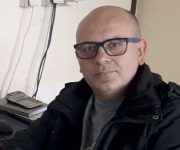If you want a competitive economy, think long term, increase the efficiency of doing business, create quality products but do not count on short term speculations- is the advice of Silvio Pedrazzi, deputy president of Executive Board of Banca Intesa
The Serbian banking sector has for a few years now been attractive for foreign investors. Foreign banks have arrived, and among the first is also the Italian group Banca Intesa. Silvio Pedrazzi, deputy president of Executive Board of Banca Intesa, in the interview for Magazin Biznis reminds us that big banking groups which want to have good positions here in future must participate in market development now already:
Our role is to advance the financial market in Serbia. That ensures a secure future for us. Many big groups have decided to come to Serbia because only if you come now can you play an important role in the future of this market- Pedrazzi points out.
Unlike many bankers, which complain of the restrictive monetary policy of the National Bank of Serbia, Silvio Pedrazzi mentions it only in passing, fiercely representing the attitude that the banks must reduce their expenses.
– That is the key move which would lead to a chain reaction in the economy. That would enable more favourable monetary investments, and Serbian companies as well as the bankers would benefit from that- Pedrazzi holds.
When in July last year he found himself in Belgrade for the first time, he hailed a taxi and politely asked the driver to take him to the “Hyatt” hotel. The driver immediately concluded aloud: “You are an Italian!”
– He found me out because we do not use sound ”h” in speech. I had pronounced the name of the hotel in a different way- Pedrazzi joked.
That is one of the first images of the Serbian capital that he remembers. He also remembers he spent his first hot day of July in Belgrade taking a walk down Kalemegdan and the city centre.
– I had never been here before that; the Serbia I knew was the one from newspaper articles. My opinion of this country had been completely different. When I came here I encountered hospitable and friendly people. The local climate was also a great surprise for me. I had always thought of Belgrade as a cold and big city. It turned out that it wasn’t like that. Unfortunately, already the first day I spotted the bombed buildings, which had not been renovated and was shocked. I hope that those buildings will be rebuilt as soon as possible- Pedrazzi said.
On of Belgrade’s advantages is that, unlike certain European cities, it is never boring. Wherever you find yourself you can always hear diverse musical tones and rhythms.
– However, regardless of the high level of unemployment and the low standard that are recorded in the statistics, one does not notice that on the streets of Belgrade. There are a few more reasons why I like living in the Serbian capital. If in London, for instance, you wish to go to a restaurant for lunch, you need a lot of money. Here, on the contrary, many people can afford going to a beautiful and high quality restaurant- Pedrazzi judged.
In the conversations with the Italian businessmen who already have their companies in Serbia he concluded that they are convinced that Serbia can be a good market. Regardless of the fact that Serbia is still considered a country of high risk for investment, many in real life become convinced very quickly that the real state of affairs is different. When they come to Serbia, Pedrazzi says, the Italians realize that here there are competent and hard working people, and many branches of industry have a great development potential.
The risk for investors doing business in Serbia or intending to come is very small, Pedrazzi states. “That is a temporary problem, because every serious businessman can judge that Serbia will join the European Union sooner or later”, Pedrazzi says. That is at the same time the explanation why so much money has arrived in this country, Pedrazzi adds:
– The Hague and Kosovo are political and not economic problems. Those stories do not worry me. Sometimes it is better to forget and say that it is the past. Serbia is, historically and geographically, already a part of Europe. I believe that Serbia can reach the development level of Poland or Slovakia in a few years, only if there is a consensus on the directions of development- Silvio Pedrazzi considers.
A. Nikolić















